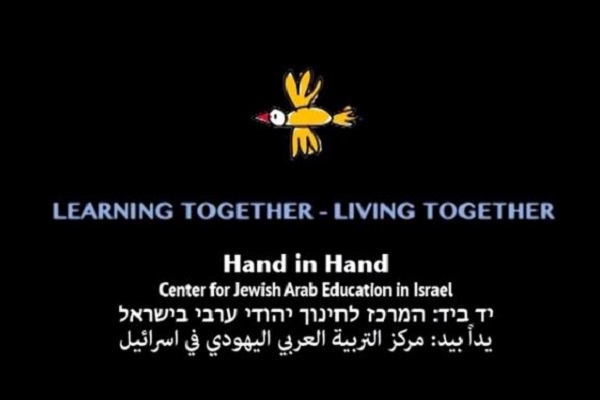
Beauty Amidst Violence: Muslim and Jewish Children Learn to Get Along in Israel
- By Gary Nguyen --
- 07 Nov 2015 --

Amidst violence, a playschool in Jaffa, Israel has been teaching Arab and Jewish children to get along together, without hatred for each other.
At Yad b’Yad, which means 'Hand in Hand' in both Arabic and Hebrew, 170 children belonging to both communities play, paint and learn without any trace of the hostility that runs deep among adults in their country. It started only in 2012, but has grown to a chain of six playschools across the nation. The number of students attending has also quintupled from its first intake. Their waiting list has grown so much that they will be forced to turn down some of those who have applied for admission. Parents say that it is important that their own children grow up not to fight each other but to live in peace and harmony. Other schools in Israel are run on religious Jewish, secular Jewish or Muslim lines.
Beauty Amidst Violence: Muslim and Jewish Children Learn to Get Along in Israel[/tweetthis]
Classes are taught in both Hebrew and Arabic, and so students learn both languages here. They celebrate Christian, Jewish and Muslim holidays and in a marked difference from when Tel Aviv, the capital of Israel, banned Arab janitors citing security reasons, the school purchased cakes for all its janitors. Instead of shying away from controversial topics like Independence Day, which is celebrated by Jews but marked by Palestinians as a sad day, they encourage dialogue.
The differences between Arabs and Jews, both of whom lay claim to the land, can be traced back to 1948, when the United Nations recognized the state of Israel, but not Palestine. After World War II, millions of Jews wanted to leave Europe for a place they could feel safe and call home, without fear of being persecuted on the basis of religion, something that had happened under Adolf Hitler. The Holocaust still fresh in everyone's memory, many nations aided them in this quest and the Jews made their way to the land surrounding Jerusalem, which was what was once occupied by their ancestors. The problem was that by then, Arabs had made it their home, calling it Palestine.
We can learn a lot from our kids. Hand in Hand-Arab/Jewish preschool an island of sanity amid violence,parents say https://t.co/4kx5p7E4s6
— Randi Weingarten (@rweingarten) October 31, 2015
International recognition for the Jewish state of Israel meant that Arabs were now aliens in their homeland. Autonomy for the areas in which Arabs were a majority was not granted as this would mean giving up control over Jerusalem and other holy places. What is more, there were two such areas, the Gaza Strip and the West Bank, with nothing but Jewish-dominated territory in between, compounding the situation even further. Other Arab nations, many of them which officially came into existence in the 1960s and 70s, today recognize Palestine as a sovereign state, but not Israel.
The conflict has claimed tens of thousands of lives from both sides, with over 65 in the past few months alone.



















